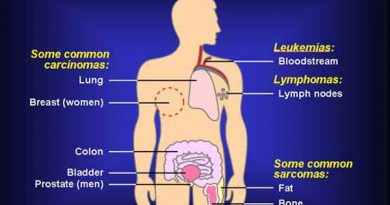Know more about medical aid contributions
Having a medical aid is vital in today’s day and age. You need to be able to protect the health and wellness of your family, as well as ensure that you are prepared in case of any emergency. It can be difficult, however, to understand everything about your medical aid. One aspect that people battle with is the contribution they will be paying each month.
Whether you will be using the best medical hospital with your medical aid or you need to visit a doctor when you are feeling ill, you will need to pay contributions to your scheme. If you are considering taking out a medical aid scheme, below is everything you need to know about the contributions.
When are my contributions due?
This is the most frequently asked question about medical aid contributions. Many people want (and need) to know when exactly their contribution will be taken off of their salary each month. This can differ according to the medical aid you are with, or you could decide on a date with the provider that best suits your needs.
The most common due date for medical aid contributions is usually the first of the month, as this is the closest day to pay-day and is when all other debit orders are taken off of your account. If you fail to pay your contributions by the deadline (some medical aids allow you fourteen days to pay) then your service will be suspended and no claims will be admitted during the suspension period.
What is a late joiner penalty?
No matter what age you are, you will need access to the best medical hospital available in your area. But if you have signed up for a medical aid late in life, then part of your contributions will include a late-joiner penalty. The late-joiner penalty will be added to your monthly contributions and it is important to keep in mind that this penalty does not expire after any amount of time.
The penalty is calculated like this: age upon application minus the number of years the applicant was not covered. The penalty is calculated by percentage. So, if you have not had a medical aid for four years, your penalty will be five percent of your total contribution. For example, if you are joining a medical aid at age 42 after belonging to a medical aid for only three years from the ages of 28 to 31, you will pay five percent extra each month.
How do copayments work?
A copayment is a portion of the cost of a medical procedure that you are required to pay. These will usually apply if you have chosen to use a hospital or doctor that is not part of your medical aid’s network. It can be a percentage or you could be asked to pay the difference between the medical aid’s tariff and the fee charged by the doctor or hospital.
You might also be asked to contribute a copayment on certain procedures, such as scopes, scans and specialised dentistry. Copayments are common across all medical aids and will be part of any general hospital plan too. You will need to find out from your medical aid how much the copayments for each procedure and hospital are in order to make a decision on one that suits your financial needs the best.
What happens if I don’t pay?
As mentioned earlier, your medical aid scheme will be suspended, and you will not be able to make any claims during this period. Some medical aids will take legal action if, within 14 days, you have not paid your contributions.
However, if you contact your provider with valid reasons and documentation as to why you are unable to pay your contributions on time, they will be able to create a repayment programme for you so your scheme is not suspended. You might not be able to make any claims during this time, but it will allow you to save money to repay your contributions that you might have missed.
How are my contributions calculated?
This differs according to the medical aid scheme you have chosen. Many reasonable medical aid schemes calculate your contributions based on your salary, which allows even young professionals on a starting salary the ability to afford a medical aid or general hospital plan.
If you will be adding a spouse, child or other family member onto your scheme, this will also be added to your monthly contributions. An adult dependent, such as your spouse or a parent, will have the same monthly contributions as the main member and a child dependent will be calculated as significantly less. However, if your child is over 21 years of age, they will no longer be allowed to be listed as a child dependent unless you can prove financial dependence or show that they are still a student.
Conclusion
Understanding your medical aid contributions can be difficult, but once you chat to your provider about the burning questions that you have, you will have a better picture. Usually, your contributions will be due at the beginning of each month, unless you have a prior arrangement with the scheme. You will need to ask about a late-joiner penalty if you have not had a medical aid for a while, and remember to ask about any copayments that you might incur.




